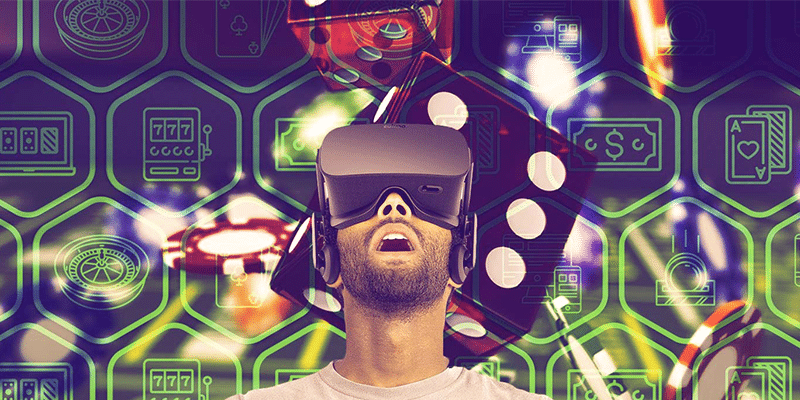
The gambling industry is at the forefront of technological advancements, constantly evolving to meet the changing needs and preferences of players
As we look ahead, the future of gambling promises exciting developments driven by virtual reality, cryptocurrencies, and the growing popularity of esports. This article explores how these trends are shaping the future of gambling and revolutionizing the way people experience and engage with games of chance and skill
1. Virtual Reality (VR) and Augmented Reality (AR):
Virtual reality technology is poised to revolutionize the gambling experience. By immersing players in realistic virtual environments, VR allows for an enhanced sense of presence and interactivity. Players can enjoy virtual casinos, interact with digital dealers, and even participate in multiplayer games, providing a more engaging and immersive gambling experience. Augmented reality also has potential applications in gambling, overlaying digital elements onto the real-world environment to create a blended experience.
2. Cryptocurrencies and Blockchain Technology:
Cryptocurrencies, such as Bitcoin and Ethereum, are increasingly being integrated into the gambling industry. The use of cryptocurrencies offers advantages such as enhanced security, anonymity, faster transactions, and reduced fees. Blockchain technology, which underpins cryptocurrencies, enables transparent and decentralized systems, ensuring fairness and preventing fraud. Cryptocurrencies and blockchain technology are transforming payment systems and providing players with more options for deposits, withdrawals, and wagering.
3. Esports Betting:
The rise of esports has captured the attention of millions of fans worldwide, and with it comes the emergence of esports betting. Esports betting involves wagering on professional video game competitions, allowing fans to engage with their favorite games and players in a new and exciting way. The esports betting market is growing rapidly, attracting a younger demographic and bridging the gap between gaming and traditional sports betting. The integration of esports into the gambling industry opens up new avenues for entertainment and revenue generation.
4. Mobile Gambling and In-Play Betting:
Mobile gambling continues to dominate the industry, providing convenience and accessibility to players. With the increasing power of smartphones and the expansion of mobile networks, gambling apps and mobile-optimized websites offer a seamless gambling experience on the go. In-play betting, also known as live betting, allows players to wager on sporting events and other activities in real-time, further enhancing the excitement and engagement of gambling.
5. Artificial Intelligence and Data Analytics:
Artificial intelligence (AI) and data analytics are revolutionizing the gambling industry by enabling personalized experiences and predictive analytics. AI-powered algorithms analyze vast amounts of data, including player behavior and preferences, to offer customized recommendations and promotions. Additionally, AI can assist in detecting and preventing problem gambling by identifying patterns of risky behavior. Data analytics also help operators optimize their services, improve customer satisfaction, and develop targeted marketing strategies.
6. Responsible Gambling and Player Protection:
As technology evolves, so do the challenges of responsible gambling and player protection. The future of gambling must prioritize the implementation of effective safeguards to mitigate the risks associated with addictive behaviors and excessive gambling. Responsible gambling tools, such as self-exclusion options, spending limits, and educational resources, should be integrated into new gambling technologies to ensure player well-being.
7. Regulatory Frameworks and Industry Collaboration:
With the rapid advancements in gambling technology, regulatory frameworks need to adapt and keep pace with the changes. Collaboration between industry stakeholders, including regulators, operators, and technology providers, is crucial in developing and implementing responsible and effective regulations. International cooperation is essential to establish consistent standards and address the global nature of the gambling industry.
Conclusion:
The future of gambling is driven by innovative technologies that enhance the player experience, offer new betting opportunities, and revolutionize the industry. Virtual reality, cryptocurrencies, and esports betting are reshaping the gambling landscape, providing immersive experiences, secure transactions, and novel forms of entertainment. The industry must balance these advancements with responsible gambling practices and effective regulation to ensure a safe and enjoyable gambling environment for all players. As technology continues to evolve, the future of gambling holds endless possibilities for innovation and growth.


